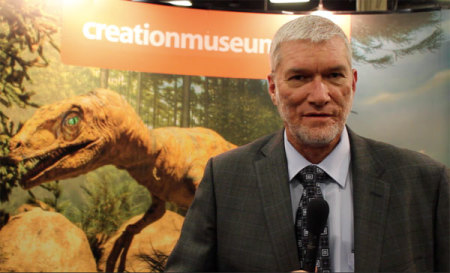Believing Unicorns Are Fantasy Instead of Real 'Demeans' God's Word,' Says Ken Ham's Answers in Genesis, Pointing to Proof in Bible

Ken Ham's Answers in Genesis group has said that believing that unicorns are fantasy and were not once a real animal is to "demean God's Word." Elizabeth Mitchell pointed out in an article posted on Friday that unicorns are specifically mentioned in the Bible, such as in the book of Job.
"To think of the biblical unicorn as a fantasy animal is to demean God's Word, which is true in every detail," Mitchell's article said.
"The Bible refers to the unicorn in the context of familiar animals, such as peacocks, lambs, lions, bullocks, goats, donkeys, horses, dogs, eagles, and calves (Job 39:9–12). In Job 38–41, God reminded Job of the characteristics of a variety of impressive animals He had created, showing Job that God was far above man in power and strength," she continued.
"Modern readers have trouble with the Bible's unicorns because we forget that a single-horned feature is not uncommon on God's menu for animal design. (Consider the rhinoceros and narwhal.) The Bible describes unicorns skipping like calves (Psalm 29:6), traveling like bullocks, and bleeding when they die (Isaiah 34:7). The presence of a very strong horn on this powerful, independent-minded creature is intended to make readers think of strength."
Mitchell said that the unicorn has gone extinct and is no longer present in the modern world, comparing it to other extinct species such as the dodo bird. AiG further reflected on rock drawings and eyewitness accounts in Africa that described the single-horned animal, and theorized that the extinct elasmotherium, a giant rhinoceros that had a 33-inch-long skull, could have, in fact, been the biblical unicorn.
"The importance of the biblical unicorn is not so much its specific identity — much as we would like to know — but its reality. The Bible is clearly describing a real animal. The unicorn mentioned in the Bible was a powerful animal possessing one or two strong horns — not the fantasy animal that has been popularized in movies and books," Mitchell argues.
Ham also leads the Creation Museum in Kentucky, which showcases a history of the Earth from a biblical perspective that holds a literal interpretation of Genesis.
Last week Ham revealed that he's filing a lawsuit against Kentucky for denying the Ark Encounter theme park project a chance to participate in the state's tax rebate incentive program.
AiG insisted that it should have the right to hire people for the project who share its beliefs, and said that the state is committing religious discrimination by denying the group such a right.





















